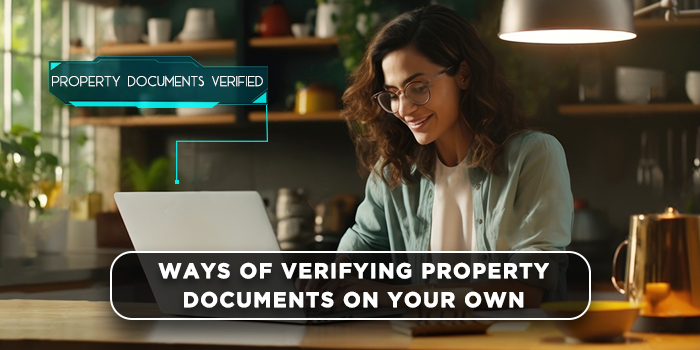Buying a property is more often than not your life’s most critical investment decision. And you don’t want to leave any stone unturned to ensure that the investment is safe. Once you have zeroed in on your dream home in your favourite neighbourhood, the next and a very important step is to scrutinize all the documents with a toothcomb to rule out any legal loopholes before you sign on the dotted lines.

Legal verification of your property papers is absolutely imperative, no matter how alluring your new home looks, so that you don’t face any litigation in future and your investment is safe. If any document is doctored or deliberately misleading, it can make life difficult for you. So, do seek professional legal assistance if you deem fit. However, you can also do this verification on your own. In any case, it is crucial that you take the initiative to study the documents properly and establish their veracity.
What are the documents to be verified?
With or without the help of a lawyer, you should collate these following documents for legal verification:
# Seller’s details: Even before you start scrutinizing the documents, find out more about the seller. Establish his/her credentials through PAN, Aadhaar, passport, etc. Then you must check his professional track record, either through media exposure or by taking feedback from previous customers. Once you are armed with these inputs, you can make an informed choice.
# Title deeds: This is the most crucial one in your bunch of documents you need to confirm and verify. The task is to establish that the person is the genuine owner of the property and has unfettered authority to sell it. You would do well to check the transaction chain to find out how many times the property has changed hands. Seek an encumbrance certificate (EC) from the Sub-registrar’s office to make sure the house/property is not shackled by mortgage, loan or debt.
# Property tax receipts: Ask to see receipts for property tax which is payable to the civic body every year. By scanning the details in the property tax receipts, you can make sure that tax payment is up to date and there are no statutory dues pending which could needlessly burden you.
# Necessary approvals: It is important to look into clearances of the building plan/layout by appropriate authorities if you are buying a land parcel. Construction can legally commence only after the land parcel is converted for residential use. In case you are buying a built property, make sure there aren’t any serious departures from the sanctioned plans. You will also need the occupancy certificate granted by the local civic body, certifying that the constructed structure is fit to be occupied, besides all the relevant NOCs.
# Sale deed: This document is essentially the bridge that transfers ownership of the property from the owner to the buyer. To avert needless hassles in the future, please ensure that this sale deed is expertly drafted and details all relevant points pertaining to both the parties. The sale deed must contain all the necessary information about the transacted property, including location, dimensions, land survey number, amount of transaction, etc.
# Possession certificate: While buying a property, you will need this document from the developer/seller, listing down the payment details as well as specifying the date of handover to the buyer. It is a must-have legal document giving the buyer the right to move into or make use of the property, as it denotes that the said property has officially changed hands.
Disclaimer : Information contained and transmitted by us are for information purposes only. All views and/or recommendations are those of the concerned author personally and made purely for information purposes. Nothing contained in the articles should be construed as business, legal, tax, accounting, investment or other advice or as an advertisement or promotion of any project or developer or locality. Pioneer Property Management Ltd. does not offer any such advice. No warranties, guarantees, promises and/or representations of any kind, express or implied, are given as to (a) the nature, standard, quality, reliability, accuracy or otherwise of the information and views provided in (and other contents of) the articles or (b) the suitability, applicability or otherwise of such information, views, or other contents for any person’s circumstances. We shall not be liable nor shall be held responsible in any manner for any action taken based on the published information (whether in law, contract, tort, by negligence, products liability or otherwise) for any losses, injury or damage (whether direct or indirect, special, incidental or consequential) suffered by such person as a result of anyone applying the information (or any other contents) in these articles or making any investment decision on the basis of such information (or any such contents), or otherwise. The users should exercise due caution and/or seek independent advice before they make any decision or take any action on the basis of such information or other contents.